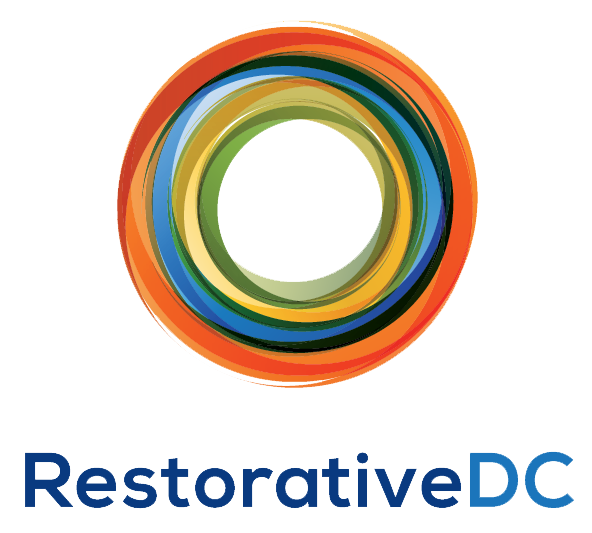Our Vision
Restorative Justice is picking up momentum in school districts and juvenile justice systems across the nation. As a promising alternative to exclusionary discipline policies, Restorative Justice practices and policies keep youth in school and out of prison, maintain safe learning environments, and provide opportunities for youth to be active and accountable members of their community.
As part of larger national and global social justice movements, we envision building a restorative city with institutions and a culture of compassion that embraces all lives and communities in the District, from schools and families to neighborhoods and government. To get there, we are committed to honest collaboration, living our values, self-reflection, empowering local communities, and disrupting racial and other forms of oppression.
The Project
Restorative DC, a project of SchoolTalk, supports around over 60 DCPS and public charter schools in whole-school implementation of Restorative Justice practices and culture change. It does so through intensive, trauma-informed, collaborative, customized, onsite, and locally-based technical support in order to lower incidents of conflict and harm, reduce the use of suspensions and expulsions, increase school performance, and center the school community around relationships, inclusivity, and accountability.
Restorative DC offers monthly training and peer learning opportunities that are open to all DC public and charter schools, as well as the agencies and organizations that youth.
In partnership with the Department of Human Services (DHS) and the DC Office of Attorney General (OAG), Restorative DC provides restorative alternatives to prosecution such as Restorative Justice Conferencing.
